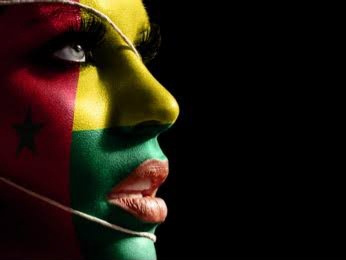Lifestyle
10 Things You Are Not Allowed to Do in Guinea-Bissau

Guinea-Bissau, located in West Africa, is a country known for its rich culture, stunning landscapes, and vibrant history. However, like many countries, there are specific customs, laws, and regulations that visitors should be aware of to avoid any legal issues or cultural misunderstandings. Here are 10 things you are not allowed to do in Guinea-Bissau:
- Engage in Drug Use or Trafficking
Guinea-Bissau is known for being a transit point for drug trafficking, particularly for cocaine, but drug use and trafficking are illegal. The country has strict laws against drug-related offenses, and being caught with drugs can lead to severe penalties, including imprisonment. - Disrespect Local Customs and Traditions
Guinea-Bissau has diverse ethnic groups, each with its own unique customs and traditions. Disrespecting or mocking local cultures, including religious practices, ceremonies, or social norms, is frowned upon and could result in confrontation or legal trouble. - Photography in Certain Areas
While photography is a common pastime for travelers, it’s important to ask for permission before taking photos in certain areas, especially in military zones, government buildings, or local villages. Not respecting these restrictions could lead to your camera being confiscated or even more serious consequences. - Engage in Public Displays of Affection
Public displays of affection, such as kissing or hugging in public, are not widely accepted in Guinea-Bissau. It’s best to show affection in private to avoid making others uncomfortable and avoid drawing unwanted attention. - Criticize the Government or Political Leaders
Political freedom in Guinea-Bissau is limited, and it is illegal to publicly criticize the government, political leaders, or the military. Speaking out against the authorities can lead to arrest or imprisonment, so it’s essential to be cautious with political discussions. - Littering
Littering is considered disrespectful to the environment and the local population. While Guinea-Bissau may not have the strictest enforcement of environmental laws, keeping public spaces clean is a cultural expectation, and you could be fined for littering in some areas. - Refuse to Follow Local Laws About Alcohol Consumption
Alcohol consumption is legal in Guinea-Bissau, but drinking in public places may be subject to local restrictions, especially in religious or ceremonial areas. Additionally, being visibly intoxicated in public can lead to unwanted attention from authorities. - Engage in Illegal Wildlife Trade
Guinea-Bissau is home to unique wildlife, including rare species of birds and marine life. Engaging in illegal wildlife trade, such as hunting protected species or selling animal parts, is prohibited by law and punishable by severe penalties. - Disregard Religious Sensitivities
While Guinea-Bissau is predominantly a Muslim country, there is also a significant Christian population. Disrespecting religious practices, mocking religious figures, or making insensitive comments about religion can lead to social tension and legal issues. - Ignore Travel Advisories and Safety Protocols
Guinea-Bissau has experienced political instability in the past, and certain areas of the country may be less safe for travelers. Ignoring travel advisories, especially in areas with ongoing security concerns or potential unrest, can put you at risk and may even violate travel regulations.
When traveling to Guinea-Bissau, it’s essential to respect local laws, customs, and traditions to ensure a smooth and enjoyable visit. Understanding the local legal and cultural framework will allow you to experience the beauty of Guinea-Bissau responsibly and avoid unnecessary trouble.




